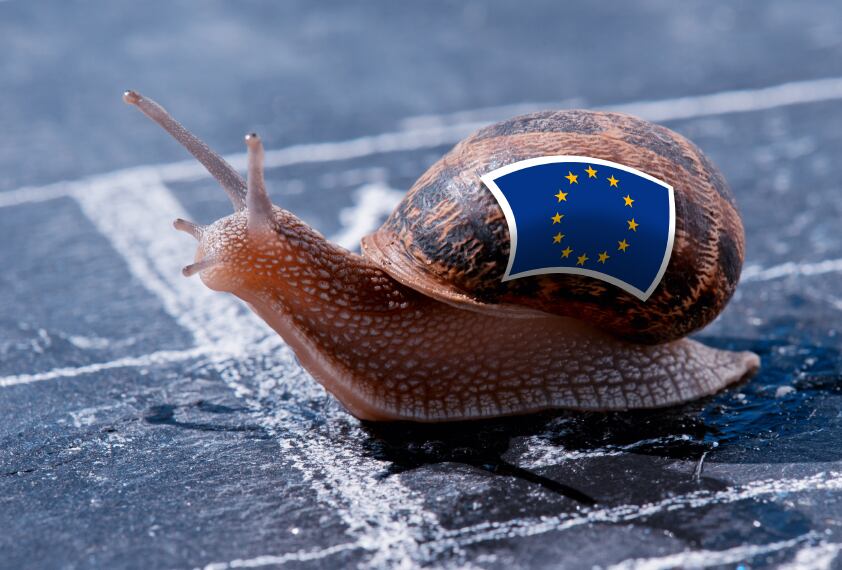Melanie Loades, founder of NPD consultancy firm Froghop, said big companies had a lot to learn from start-ups.
“I think they could learn to look a bit wider in terms of ingredient use. The newer companies tend to be a bit more experimental or have a less closed view of which ingredients you could use and actually bring in new flavours in addition to the nutritional benefits,” said Loades, who worked for two decades for the likes of Unilever, International Food Network and NSA International in product development.
“I do think from experience that some big companies can suffer a little bit from store cupboard product development. It’s very easy to have a lovely range of products that are selling really well and then say: ‘Right we need to do something new, let’s go look in the store cupboard and see what new flavours we can add to it.’ Rather than innovating in a more exciting way.”
Loades said it was the smaller companies pushing boundaries and spurring innovation across the market.

“As long as they’re allowed within Europe and they’re not novel foods, they’ll be the ones testing the waters and bringing those into new products.”
This is something that hasn’t escaped the attention of some of the big nutrition players.
A growing trend
In December DuPont’s nutrition and health president, Matthias Heinzel, told us his multi-billion euro division wanted to speed product-to-market time and increase work with start-ups.
“We are totally open to working with external partners,” Heinzel said.
“There are start-ups out there looking for partners and we are every open to that.”
Such a relationship would go beyond cash flow from the top down, he said.
“They operate differently but our experience is that it is stimulating for both sides. It is never easy but I think we have good examples of where working together elevates the overall outcome.
"We need to make sure that we talk to them eye to eye and not come across as the big global player. Our teams like that and I feel we are making good progress with those companies.”
Food ingredient and manufacturing giants Givaudan, Nestlé and Bühler also appeared to be jumping on the start-up bandwagon by supporting the Swiss launch of start-up incubator MassChallenge, which will see the industry giants working with newbies in the areas of food, life sciences, sensors and precision engineering.
The programme claims to have generated over €464 million ($520m) in revenue and created over 6,500 jobs since it began in 2010.
Meanwhile Unilever Foundry – a global platform through which Unilever collaborates with start-ups, innovators and entrepreneurs – has seen 85 pilots set up in 32 countries and over $5m (€4.47m) invested in ‘disruptive’ new businesses in a year.
In the establishment of the programme the company cited the observation of ex General Electric CEO Jack Welch, who reportedly once said: “When the rate of change on the outside exceeds the rate of change on the inside, the end is near.”
Discussing the importance of new businesses, Eurostat says: “The birth of new enterprises is often seen as one of the key determinants of job creation and economic growth. Enterprise births are thought to increase the competitiveness of a country's enterprise population, by obliging them to become more efficient in view of newly emerging competition. As such, they stimulate innovation and facilitate the adoption of new technologies, while helping to increase overall productivity within an economy.”
This was an idea echoed by New Nutrition Business consultant Julian Mellentin, who said there had been a consumer-led shift within the food ingredient market.

“Whereas in the past ingredients companies would think about targeting high-volume business at some big name, selling a lot of kilos to a Unilever, those days are becoming more difficult and increasingly what you find is that the most successful ingredients businesses are the ones who work often with small entrepreneurial start-ups,” he told us last year.
“The volumes involved in the beginning are often tiny – this leads often to some very difficult internal debates – like why are we putting so much energy into serving a small company? But there are companies here today who have got significant business on the back of working with those entrepreneurial start-ups. So that’s a big strategic change that has started with the consumer, is happening to brands and is going to affect the ingredients supply industry more and more.”
This required a business culture change for some, he said.
“You shouldn’t smack your sales people over the head if they haven’t come back with a giant order from Nestlé. In fact what you should do is congratulate them that they have found 20 small entrepreneurial companies because out of those 20, two or three will become quite worthwhile and that’s a very difficult mind set for a lot of companies to adopt.”
But is the EU start-up friendly?
According to official European data from 27 member states, the number of new enterprises as a proportion of the total number of active enterprises slightly decreased by 5% in 2012 compared with 2011.
Rates of new businesses ranged from 5% in Belgium to 24.9% in Lithuania.
These rates for 2011 and 2012 were lowest in Malta, Cyprus and Belgium and highest for Lithuania and Latvia.
However in 2011 there were more enterprises begun than ended on both an EU level and within the majority of member states.
For Loades London stood out as a hive of start-up activity.
“London is innovation central right now, it’s awesome.”

So has this start-up culture been hindered by the health claims regulation?
“Well on the surface it is,” said Loades. “You can’t pick up your new funky ingredient whatever it is and look at the health claims list and say ‘great, I want to use turmeric, here’s the health claim’ because it’s not there.”
Instead start-ups had to start from the health condition they wanted to target and work back to ingredients and nutrients with the relevant approved claims. Often this meant using newer 'claim-less' ingredients in combination with established vitamins and minerals.
The industry was currently in an “artificial situation”, she said, since the 2006 nutrition and health claims regulation was still relatively new.
“There are still claims that we can’t make that to me seem slightly ridiculous but it’s just because they haven’t gone through the process. And they tend to be on more complicated ingredients like vegetables, fruits and spices.”
Industry has long complained complex EU regulation was anti innovation.
It's hoped that recently approved changes to novel food regulation would spur growth in the EU, easing approval of new safe ingredients and processes.
Yet it remains to be seen how effective this will be.
“I regularly say to people that in ten years’ time the story will be different," said Loades. "Novel food [regulation] is changing. More and more people are putting through health claims.”
